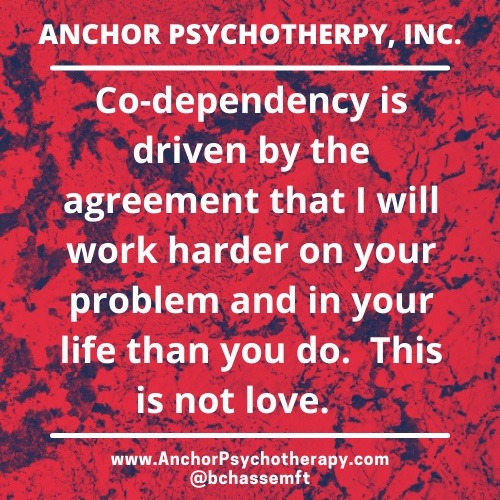It can be excruciatingly painful to watch someone you love struggle and it’s natural to want to help. In fact, we are hardwired to want to protect family members and those we love from harm. But when does love, protection, and support cross the line into co-dependency? The truth is, there can be a fine line between the two and the answer often lies within whether you are helping lift someone up or providing a type of support that allows them to continue their dysfunctional behavior, avoid change or growth, or preventing them from reaching a level of discomfort where their only option is to seek the help they truly need (often referred to as “reaching bottom”).
Although not exclusive to addiction by any means, co-dependency is a very common dynamic in families where substance abuse is a challenge, and it serves a dual purpose in the family system. First, very simply put, it’s painful to watch a loved one suffer. We want to help and support our loved ones. The problem comes when support shifts into rescuing. The second reason is a little more complex but plays an equally impairing role in breaking the cycle of co-dependency. The truth is, we are hardwired to resist discomfort—even mild discomfort. Addiction is terrifying and the fear of watching a loved one spiral out of control can feel completely disempowering. The struggle to tolerate the distress, uncertainty, and sheer fear day-in and day-out can be an incredibly motivating force for one to attempt to resolve the addiction on behalf of the loved one. The problem with this approach is that no amount of effort, love, support, or resources can resolve another person’s problem for them—and attempting to do so can impair their ability to develop the drive to attempt to do so for themselves. So, what might co-dependency and real support look like in real life:
EXAMPLES OF RESCUING:
- Taking on responsibility that isn’t yours.
- Making excuses for how one behaves.
- Minimizing the behavior of another.
- Minimizing or excusing how the behavior of another impacts you or those you love.
- Holding secrets that foster the dysfunction or engage in behaviors that make you feel guilt, shame, or just badly about yourself (e.g., giving an addict money, taking them to get a fix so they can avoid the effects of withdrawal)
- Taking the blame for the actions of another.
- Providing unsolicited solutions or advice.
- Prioritizing the needs of another over your own—even when it comes at the expense of your own mental health.
EXAMPLES OF SUPPORT:
- Actively listening and empathizing.
- Acknowledging what we do not have control over.
- Establishing and enforcing clear boundaries about what we will and will, and how we will and will not allow another to treat us—and then tolerating their reaction in response to the boundary.
- A quick note: The bigger the reaction another has to me setting a boundary, the more their reaction validates how important that boundary is for me enforce and how needed the boundary was.
- Allowing others to learn from their own mistakes and honoring that this may be an important part of their journey.
- Honoring another’s decision to decline help and honoring that you cannot work harder to save someone struggling than they are willing to work themselves. You can invest in the person, but not in the outcome.
- Prioritizing our own needs and, particularly our own mental wellness.
When I work with addiction in my therapy practice, I always tell families that if one member of the family is struggling with addiction, the entire family is struggling with addiction. The collateral damage of addiction and co-dependence is staggering! Patterns of co-dependency are not easy to break. If you struggle with rescuing behavior, practice taking a pause and asking yourself, “Does my engagement help this person heal or help them remain sick?” If the answer is the later, chances are it’s co-dependent. Breaking the cycle of co-dependency is a process—like a muscle that needs to be exercised. Keep working that muscle and, above all else, be gentle with yourself in the process.

